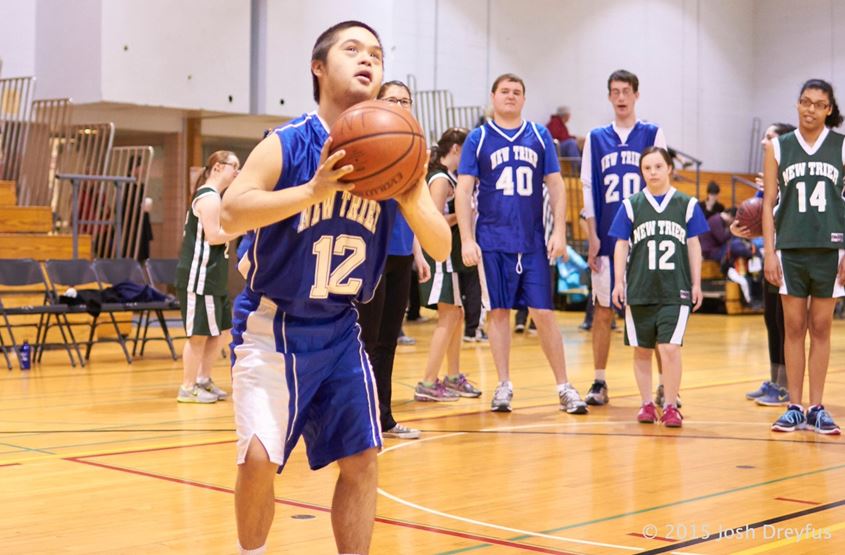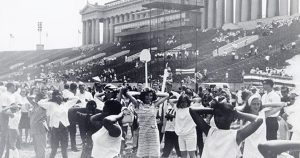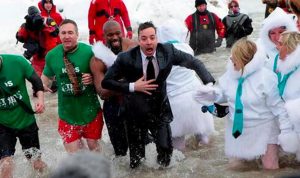On May 12th, 2015, EAF will be hosting Sports and Society to bring together experts who will speak to the profound and diverse impacts that sports have in our communities. In the spirit of this discussion, this week we’re taking a look at Special Olympics, an organization that aims to empower youth and adults with intellectual and physical disabilities and cultivate a wider understanding and appreciation for their unique capabilities.
Special Olympics began in the 1950s, with the vision of Eunice Kennedy Shriver. She noticed that the children in her neighborhood with disabilities lacked the opportunity for structured play. Shriver came up with the idea to start a backyard summer camp which would tailor its activities to the participants’ unique abilities rather than dwelling on their limitations [2].
It was from these humble beginnings that Shriver worked to grow the organization. In July of 1968, the First International Special Olympics Summer Games were held in Chicago, at Soldier Field. By 1988, Special Olympics had been formally recognized and endorsed by the International Olympic Committee.
The first annual Special Olympics Summer Games at Soldier Field in 1968 [3].
Today, the Special Olympics program serves approximately 4.4 million individuals with intellectual disabilities worldwide. Its programs reach athletes in 170 countries and engage more than 1.3 million volunteers annually [4].
The Special Olympics movement has spurred the creation of initiatives such as “Healthy Athletes,” “Spread the Word to End the Word” and the “Chicago Polar Plunge”, which challenges participants to elicit donations for a winter dive into Lake Michigan. Notable participants of the Polar Plunge in Chicago have included Mayor Rahm Emanuel, Vince Vaughn, and Jimmy Fallon.
Jimmy Fallon takes the Polar Plunge for Special Olympics in Chicago [5].
Apart from its effort to make a difference in the lives of its athletes, Special Olympics also strives to challenge negative perceptions of disability. In 2003, the organization released “The Multinational Study of Attitudes toward Individuals with Intellectual Disabilities,” a comprehensive study that examined “how people around the world view the roles and capabilities of persons with intellectual disabilities in the workplace, classroom and daily social life” [6]. Through its children’s, school, and adult programs, Special Olympics is working to affect lifelong change for its athletes, helping them build confidence and skills that will resonate in all other aspects of their lives.
Special Olympics is just one of the numerous ways that illustrate sports’ profound impact on society. More perspectives would be explored and discussed at our event on May 12th – we hope to see you there!
Engage with Special Olympics in Chicago
Join Special Olympics Chicago on May 4th from 10 AM – 2 PM at Soldier Field for the Spring Games Opening Ceremonies! Parking is free. The Spring Games Competition will take place the following day at Eckersall Stadium from 9 AM – 3 PM [7].
To learn more about getting involved with Special Olympics visit their website here.
Or, check out opportunities in Chicago here.
Sources & Links:
[1] Photo Credit: Josh Dreyfus – http://www.joshdreyfus.com/
[2] http://www.specialolympics.org/history.aspx
[3] http://www.specialolympics.org/history.aspx
[4] http://www.specialolympics.org/
[5] @NBCChicago



